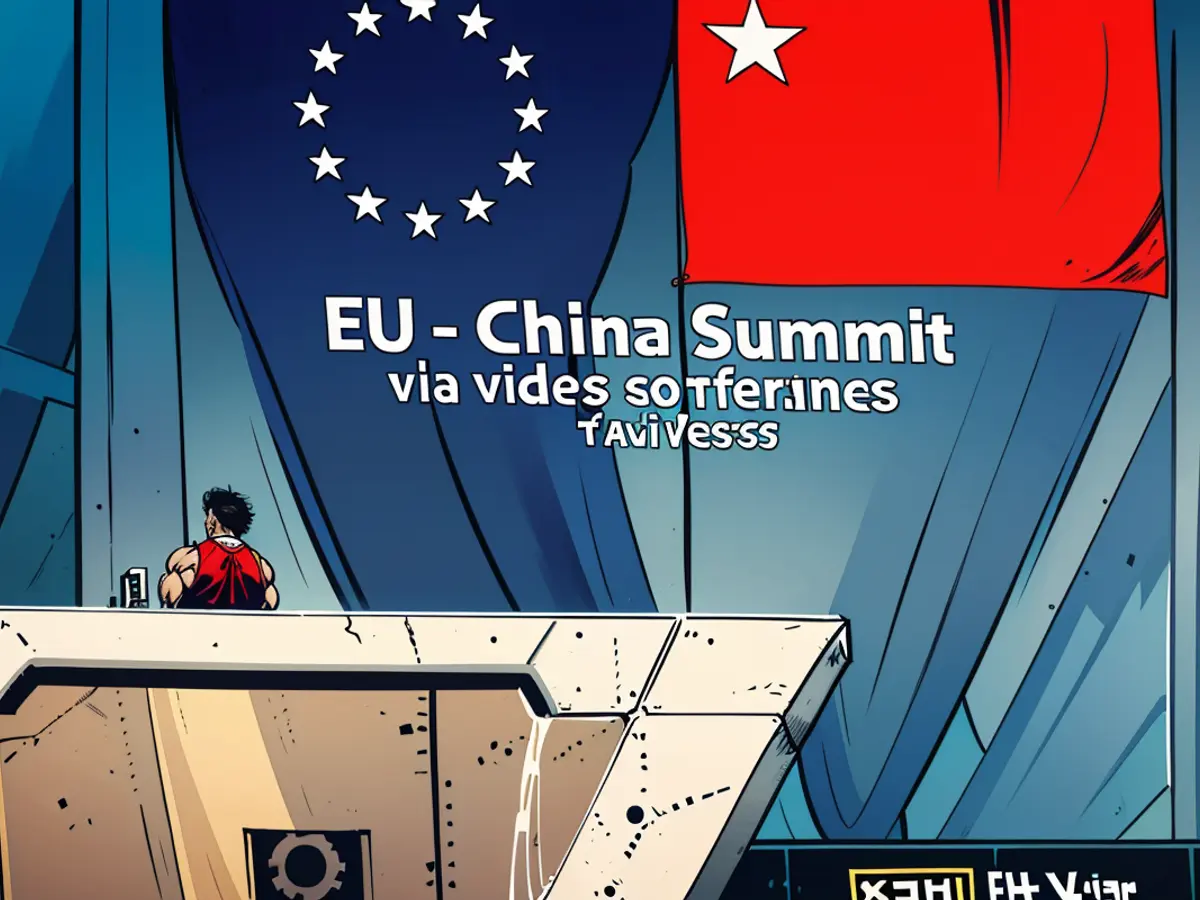Dispute with Brussels: Beijing now investigating EU trade practices
The formal investigation into the trading practices of the EU is ongoing until January 10, 2025, but can be extended by three months, as announced by the Chinese Ministry of Commerce. This was done in response to a complaint from the Chinese Chamber of Commerce, the ministry stated. The issue concerns "trade and investment obstacles for Chinese companies" from the EU. Investigations will focus on "pre-examination, in-depth investigations, and unannounced inspections of Chinese companies".
The mentioned industries are the same ones where Brussels has launched investigations for unfair competition in the past few months. In mid-February, investigations began against a daughter company of the massive Chinese train manufacturer CRRC. The state-owned enterprise had bid for the supply of electric trains to Bulgaria, and Brussels suspected price distortions due to Chinese state subsidizations. At the end of March, CRRC withdrew its offer.
In April, the EU Commission announced that it was examining the awarding of a contract for a solar park in Romania - under scrutiny are a daughter company of the Chinese solar cell market leader, Longi, as well as two subsidiaries controlled by the state-owned Shanghai Electric. At the end of April, an investigation was launched into allegedly unfair public tenders for medical equipment. Another investigation is ongoing against wind turbine manufacturers.
In June, the announcement of tariff increases for Chinese electric cars of up to 38% followed. Brussels provisionally imposed these additional import tariffs at the beginning of July - a final decision is expected until early November.
China reacted angrily and declared that it would file a complaint against the EU at the World Trade Organization (WTO). Beijing also initiated an anti-dumping procedure against European brandy - primarily French cognac is in the spotlight. The investigation had already begun in January. Since June, an investigation has been ongoing against European pork and pork products - the imports mainly come from Spain, France, the Netherlands, and Denmark.
For the EU, the trade disputes with China are a difficult balancing act. On the one hand, the 27 member states often depend on Chinese products and raw materials, especially in the expansion of renewable energies. On the other hand, companies in the EU have been complaining about unfair competition for decades. Brussels wants to reduce the EU's dependence on China, as the alliance is seen as an increasing security risk.
- The ongoing investigation into the EU's trading practices, which formerly commenced in 2022 and is scheduled to conclude on January 10, 2025, encompasses concerns regarding "trade and investment obstacles for Chinese companies" in Brussels' view.
- The Ministry of Commerce in Beijing announced an extension of this investigation, citing a complaint from the Chinese Chamber of Commerce, and indicating the potential for a further three-month period of examination.
- In response to this investigation, CRRC, a prominent Chinese train manufacturer, discontinued its bid for the supply of electric trains to Bulgaria in March, amidst allegations of price distortions caused by Chinese state subsidizations.
- In April, the EU Commission launched an investigation into the awarding of a solar park contract in Romania, scrutinizing a daughter company of the Chinese solar cell market leader, Longi, as well as two state-controlled subsidiaries associated with Shanghai Electric.
- The dispute also extended to medical equipment, with an investigation launched in April into allegedly unfair public tenders, alongside an ongoing probe into wind turbine manufacturers.
- The Ministry of Trade in Brussels is navigating a challenging balancing act in the context of trade disputes with China, as EU member states rely heavily on Chinese products and raw materials, particularly in the expansion of renewable energies, while continuously echoing complaints about unfair competition for years.







